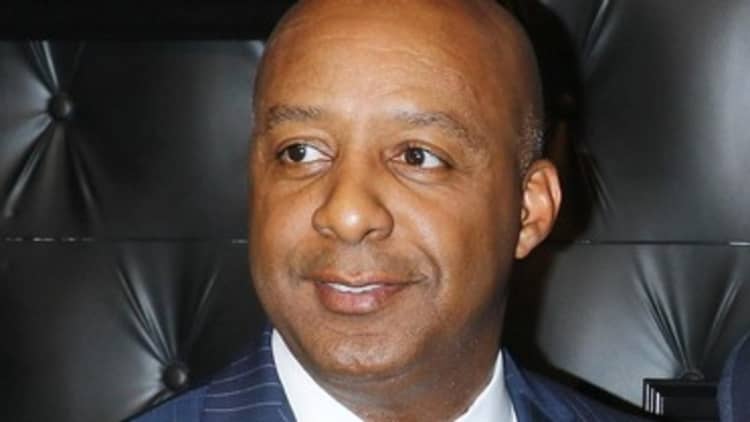Marvin Ellison's roots in retail are far humbler than the confidence placed in his current C-suite title.
The 51-year-old Ellison, who became CEO of J.C. Penney in August, started his career as a part-time associate at Target, making just $4.35 an hour. Last year, he officially took the helm at Penney's, in hopes he could help the retailer recover billions of dollars lost during a failed turnaround strategy.
Former CEO Mike Ullman said his successor, who came from Home Depot, has a track record of improving operations, and has exactly what the company needs to continue its revitalization.
Though the company faces plenty of challenges, including a stock that trades at a fraction of its previous highs, Ellison is already making headway. Last year, the company's revenues increased 3 percent, to more than $12.6 billion.
For those still early in their careers, Ellison's advice is to find a mentor who can help them set goals.
"The easiest thing to do is to find someone in a job you'd love to have in five years and figure out how they got there. Reverse engineer their path," Ellison told CNBC.
After that, he said, it's about putting in the work.
"Companies survive because of great performance. If you perform at a sustainable level consistently, you're going to move ahead. If you don't, then you're working for the wrong company and that may be a decision you have to make," he said.
As a person moves into a leadership role, Ellison said he or she needs to be able to plan and hire well. That means setting a strategy, then hiring talent that can "go out and do things better than you can do yourself," he said.
One thing the CEO advises other leaders to be careful about is being too focused on the big picture.
"A lot of times when you're looking so far down the road, I tell my team you can trip on the curb at your feet. It's important to have balance — short-term balance, long-term balance — and not get ahead of yourself," he said.
"I've made those mistakes in the past and I don't plan to make those in the future."




